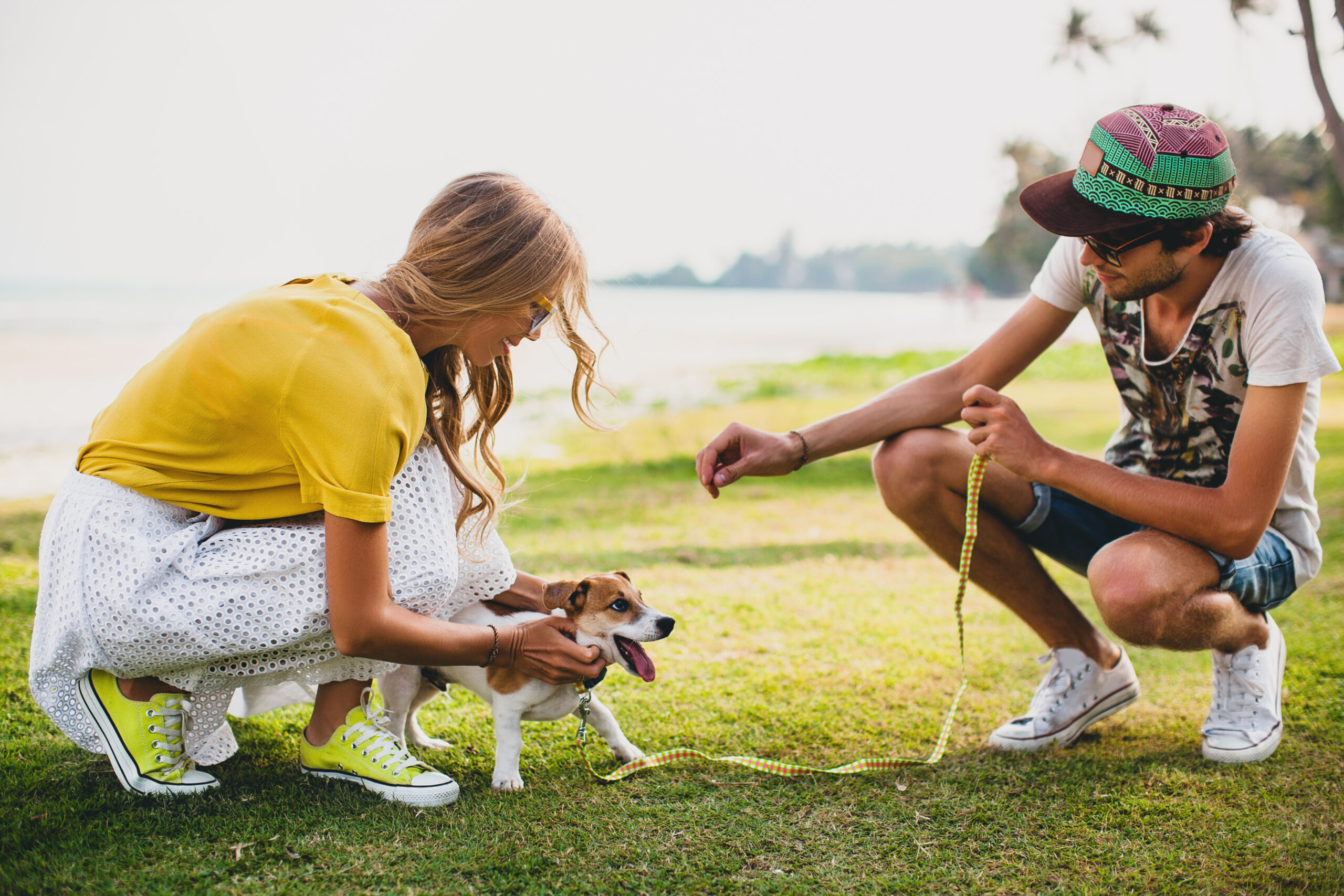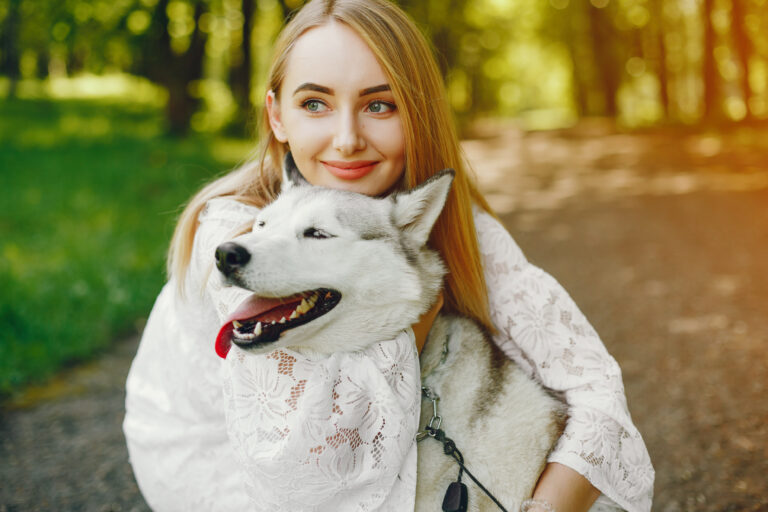How to Socialize Your Dog Positively with Other Dogs and People
Socializing your dog is essential for their behavioral and emotional well-being. In this guide, we’ll explore how to socialize your dog positively with other dogs and people, ensuring they develop confidence and avoid common behavioral issues.
Benefits of Positive Dog Interactions
When it comes to socializing your dog, the benefits of positive interactions with other dogs and people are numerous. Not only does socialization help prevent fear and aggression towards others, but it also plays a crucial role in shaping your dog’s behavior and emotional well-being. By exposing your dog to various environments and experiences, you are helping them become more well-adjusted and adaptable in different situations. For instance, a well-socialized dog is more likely to exhibit good behavior in social settings, making outings to the dog park or walks in the neighborhood a pleasant experience for both the dog and the owner.
Moreover, positive social interactions can significantly impact a dog’s confidence and overall temperament. When dogs have the opportunity to meet and play with others in a safe and controlled manner, they learn valuable social skills that are essential for their development. These interactions not only boost their confidence but also help them build a positive association with meeting new people and dogs. Additionally, well-socialized dogs are more likely to be friendly and approachable, making them a joy to be around in various social settings. Ultimately, the benefits of positive dog interactions extend beyond just social behavior; they contribute to a dog’s emotional stability, mental health, and overall happiness, reinforcing the importance of socialization in a dog’s life.
Effective Socialization Techniques
When it comes to effectively socializing your dog, using positive reinforcement techniques is key. Treats and playdates can be powerful tools in helping your dog develop healthy social skills and positive associations with new experiences. For example, when your dog meets a new friend at the park and displays good behavior, rewarding them with a tasty treat reinforces that positive interaction. This positive reinforcement encourages your dog to continue exhibiting desirable behaviors during socialization. Furthermore, gradual exposure to various stimuli and environments is essential in socializing adult dogs. By slowly introducing your dog to different situations, you are helping them feel more comfortable and confident in unfamiliar settings. Remember, the goal of socialization is to create a positive and enjoyable experience for your dog, building their trust and strengthening their bond with you as their owner.
Introduction: Understanding the Importance of Dog Socialization
Dog socialization plays a crucial role in ensuring that our furry friends are well-adjusted and can interact positively with other dogs and people. This process involves exposing dogs to various environments, sounds, and interactions to help them build confidence and develop appropriate social behaviors. Early socialization, particularly for puppies between 3 to 14 weeks old, is essential for shaping their behavior and preventing future issues.
Socialization not only aids in preventing fear and aggression towards others but also helps dogs become more adaptable to new situations and environments. For instance, a well-socialized dog is more likely to remain calm and exhibit good behavior when encountering unfamiliar dogs or people at the park, making outings more enjoyable for both the pet and the owner. Additionally, dogs that have positive interactions with others tend to be more responsive and obedient, strengthening the bond between the pet and their owner. This bond is crucial as it fosters trust and enhances communication, making training and socialization more effective in the long run.
 Importance of Dog Socialization
Importance of Dog Socialization
Socializing dogs from an early age plays a vital role in shaping their behavior and overall well-being. Not only does it prevent fear and aggression towards others, but it also fosters positive interactions, reducing the likelihood of behavioral problems down the line. For example, a well-socialized puppy that is exposed to different environments, sounds, and stimuli is more likely to grow into a confident and well-adjusted adult dog. This early socialization can help them feel comfortable and at ease in various situations, leading to a happier and more fulfilling life for both the dog and their owner.
Moreover, dogs that are well-socialized tend to exhibit greater adaptability, resilience, and lower levels of anxiety or fear-based aggression. By introducing puppies to different people, dogs, and environments early on, they learn to navigate the world with confidence and ease. This exposure sets a strong foundation for their social skills and emotional stability, enabling them to interact positively with others throughout their lives. In contrast, inadequate socialization can result in behavioral issues, such as fearfulness, reactivity, or difficulty in new situations. Therefore, investing time and effort in socializing your dog can significantly impact their behavior and quality of life in the long term.
 Benefits of Positive Dog Interactions
Benefits of Positive Dog Interactions
Interacting with other dogs and people in a positive manner is vital for a dog’s overall development. These experiences help dogs learn appropriate social behaviors, leading to good behavior in social settings and enhancing their adaptability to new environments. Well-socialized dogs are more likely to exhibit obedience, responsiveness, and a friendly demeanor towards others.
Positive interactions with other dogs and people offer numerous benefits for your furry companion. Not only does socialization prevent fear and aggression towards others, but it also helps in building confidence and promoting positive relationships with different individuals. For instance, when a puppy is exposed to various stimuli and environments during socialization, it learns to navigate new situations with ease, reducing anxiety and fear-based aggression tendencies. This positive exposure plays a crucial role in shaping a dog’s behavior and ensures they can interact positively with a diverse range of individuals and animals they encounter. By fostering these interactions early on, you are laying the foundation for a well-adjusted and socially adept canine companion.
Effective Socialization Techniques
Effective socialization techniques are essential for helping your dog interact positively with other dogs and people. Positive reinforcement, such as using treats and arranging playdates, plays a significant role in fostering healthy social skills in dogs of all ages. For example, when introducing a puppy to new experiences, offering treats and organizing playdates with well-socialized dogs can create positive associations and build their confidence. On the other hand, adult dogs may require a more gradual approach to socialization, especially if they have had limited exposure to other dogs or people. Seeking professional guidance and being patient with your adult dog during socialization can make the process smoother and more successful.
Moreover, the key to effective socialization lies in ensuring that the experience is enjoyable for your dog. By creating a positive and fun environment during socialization activities, you can help your dog feel more comfortable and confident around others. For instance, incorporating interactive toys during playdates can keep your dog engaged and make the experience rewarding. This positive reinforcement not only strengthens the bond between you and your dog but also encourages them to exhibit desirable social behaviors in various situations. Remember, a positive and enjoyable socialization experience is crucial for building your dog’s social confidence and promoting healthy interactions with other dogs and people.
Tools for Dog Socialization
When it comes to socializing your dog, interactive toys play a crucial role in keeping them engaged and entertained during training sessions and playdates. These toys not only provide mental stimulation but also help in reinforcing positive behaviors through interactive play. For example, puzzle toys can challenge your dog’s problem-solving skills while rewarding them with treats, making the socialization process both fun and rewarding.
Consistency is key when it comes to training and socialization efforts with your furry companion. By establishing a routine and sticking to it, your dog will learn what is expected of them and feel more secure in their interactions with other dogs and people. For instance, if you reward your dog with treats for good behavior during socialization activities consistently, they will quickly associate positive experiences with meeting new dogs or people. This consistency builds trust and confidence in your dog, making them more receptive to social interactions in the long run.
Moreover, fostering a strong bond with your dog through socialization activities goes beyond just training them to behave well around others. By spending quality time engaging in socialization exercises, you deepen your connection with your pet, which can translate into improved obedience and responsiveness in various social settings. For instance, taking your dog on regular outings to meet new people and dogs not only helps them socialize but also strengthens the bond between you and your furry friend, creating a positive and lasting relationship based on trust and companionship.
Socialization in Various Environments
When it comes to socializing your dog, exposure to various environments plays a vital role in their development and behavior. For instance, taking your dog to a bustling park, a quiet street, or a pet-friendly cafe can help them acclimate to different surroundings, sounds, and people. This exposure not only builds their confidence but also teaches them how to navigate new experiences with ease and composure.
Additionally, controlled interactions with other dogs in different settings can be a valuable learning opportunity for your furry friend. For example, a structured playdate in a secure environment allows dogs to practice appropriate social behaviors, such as reading and responding to canine body language effectively. This hands-on experience helps them develop crucial social skills , like proper communication and conflict resolution, which are essential for positive interactions with other dogs and people.
Moreover, socializing your dog in public places, like dog-friendly events or outdoor markets, can have a profound impact on their adaptability and overall well-being. By exposing them to diverse environments and stimuli, you are helping them become more well-rounded companions who are comfortable and confident in various situations. This exposure not only enriches their lives but also fosters a sense of security and ease when encountering new places or meeting new faces.
 Overcoming Socialization Challenges
Overcoming Socialization Challenges
Socializing your puppy during challenging times, such as the COVID-19 restrictions, can be achieved by being creative and proactive. For instance, setting up playdates with other dogs virtually through video calls can help your puppy get accustomed to different dog behaviors and interactions, albeit in a virtual environment. This method allows your puppy to see and hear other dogs, promoting early exposure and socialization.
Additionally, when facing obstacles in the socialization process, it’s essential to remember that consistency is key. Even if meeting a large number of dogs is not feasible, focusing on the quality of interactions rather than the quantity can still be highly beneficial. Each positive encounter contributes to your puppy’s social development, so making the most out of every opportunity is crucial.
Moreover, seeking assistance from professional trainers or behaviorists can provide tailored guidance and support to address specific challenges your puppy may encounter during socialization. These experts can offer personalized strategies and techniques to help your puppy build confidence, overcome fears, and develop positive social behaviors, ensuring a well-rounded and socially adept companion in the long run.



 Importance of Dog Socialization
Importance of Dog Socialization Benefits of Positive Dog Interactions
Benefits of Positive Dog Interactions Overcoming Socialization Challenges
Overcoming Socialization Challenges